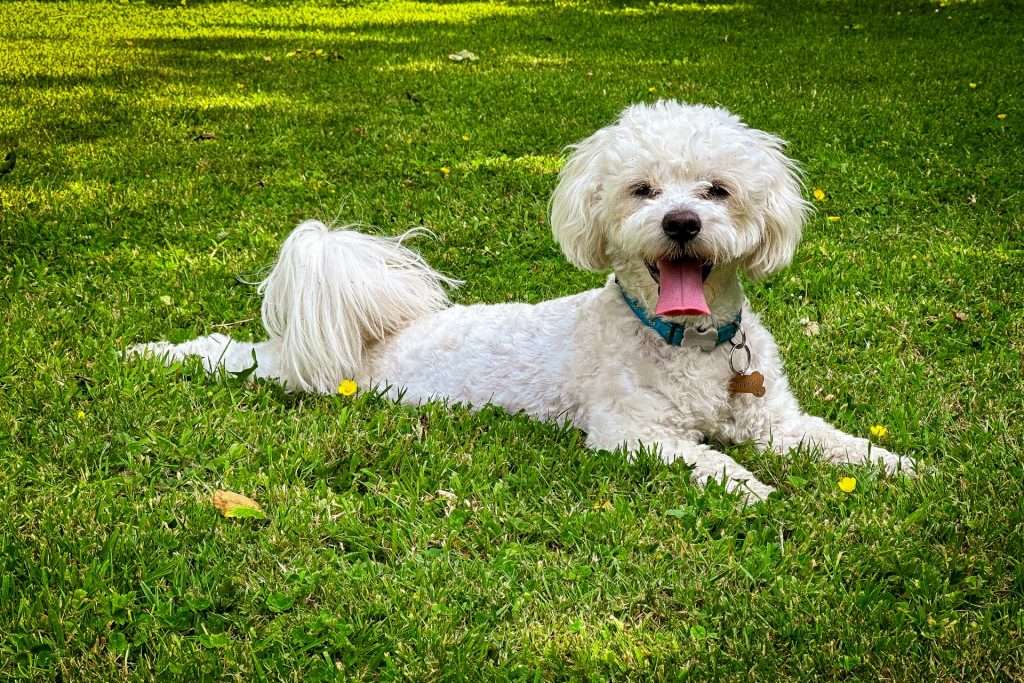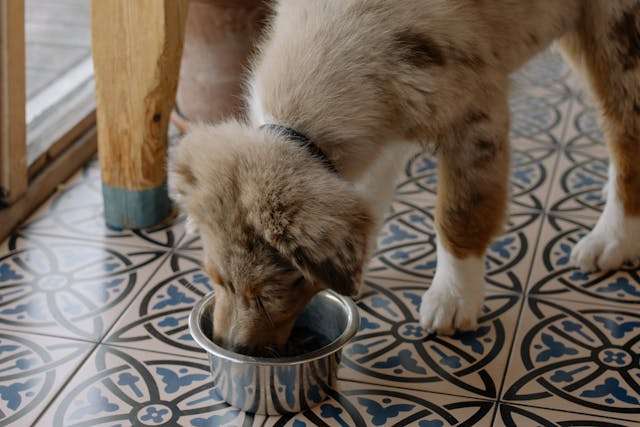Best Dog Food for Bichon Frise: A Complete Guide

Feeding your Bichon Frise isn’t just about filling their bowl—it’s about supporting their health and happiness. Known for their charming personalities and unique needs, Bichons thrive on a diet tailored to their size, energy level, and potential sensitivities.
Choosing the right food can help prevent common issues like allergies or obesity while promoting a shiny coat and lasting energy. In this guide, you’ll discover expert insights and practical tips to make mealtime decisions easier. For more about Bichons, check out this handy guide on their care and lifestyle.
Table of Contents
Nutritional Requirements for Bichon Frise
Bichon Frise dogs are small but lively companions with quite specific dietary needs. A balanced diet keeps their energy up, coats shiny, and health issues at bay. From protein to fiber, here’s what your furry friend needs for optimal health.
Protein Needs: The Building Blocks of Health
Protein is the cornerstone of your Bichon Frise’s diet. It supports muscle maintenance, tissue repair, and overall growth. Since these dogs typically weigh between 10 and 18 pounds, they require protein-rich meals tailored to their size. High-quality proteins like chicken, fish, and turkey are excellent options. The Association of American Feed Control Officials (AAFCO) recommends at least 22% protein for puppies and 18% for adult dogs.
Not providing enough protein can lead to a lack of energy and muscle loss, while too much may cause weight gain. Look for dog food specially formulated for smaller breeds to maintain the correct protein levels. For more insights on essential dietary needs, check out this helpful guide.

Photo by Jeffry S.S.
Fat Requirements: Fuel their Energy and Shine
Fats are essential for keeping your Bichon Frise energetic and their coat silky smooth. A small dog like this needs significant energy for their size, and healthy fats are the perfect fuel. Omega-3 and Omega-6 fatty acids, found in ingredients like salmon oil and flaxseed, are particularly beneficial for skin health and reducing inflammation. Additionally, the shiny coat you love to see on your Bichon is maintained with the help of these healthy fats.
However, moderation is key. Too much fat can lead to weight problems, especially for a breed prone to obesity. Aim for food containing 10-15% fat content. Need more guidance on selecting food with balanced fat content? Visit Feeding the Fluffy Bichon Frise.
Carbohydrates and Fiber: Sustained Energy and Better Digestion
Carbohydrates act as the primary energy source for your pup. Whole grains such as brown rice, oats, and even quinoa deliver slow-digesting energy, perfect for keeping your Bichon lively throughout the day. These carbs not only fuel your dog but also contain essential nutrients.
Don’t forget about fiber—it plays a pivotal role in digestion. Fibers from sources like pumpkin, sweet potatoes, and carrots can help prevent common digestive issues like constipation. Plus, they keep your dog feeling full, which helps manage weight in smaller breeds.
A balanced diet with adequate carbs and fiber ensures your pup’s tummy stays happy and their body remains active. Wondering how many calories your Bichon needs? Check this helpful article on Dietary Needs of the Bichon Frise.
Understanding these nutritional pillars—protein, fat, and carbohydrates—sets your Bichon Frise on the path to a long, happy, and healthy life. Want to find out how specific Bichon-friendly foods stack up? Dive deeper into our Dog Breed Guide.
Top Dog Food Brands for Bichon Frise
Choosing the right dog food for your Bichon Frise ensures optimal health, a vibrant coat, and happy energy levels. Below are some of the top dog food brands that cater specifically to the unique needs of this breed.
Brand A: Royal Canin Bichon Frise Adult

Photo by Teresa Jang
Royal Canin offers breed-specific nutrition tailored to the Bichon Frise. Their Bichon Frise Adult Dry Dog Food is designed to support a healthy coat and optimal urinary health. Bichons are prone to urinary issues, and this formula includes ingredients to reduce the risk of stone formation. The kibble size is perfect for their tiny mouths, making it easier to chew and digest.
- Key Benefits:
- Formulated specifically for Bichon Frise.
- Supports skin and coat health.
- Optimizes urinary tract health.
Check out Royal Canin Bichon Frise Adult Dog Food for more details.
Brand B: Pure Pet Food
Pure Pet Food is popular among sensitive breeds like the Bichon Frise. Their products emphasize natural, hypoallergenic ingredients, ensuring nutritious meals are easy on the tummy. With single-source protein options, these recipes reduce the chance of allergic reactions while maintaining premium quality. This approach is excellent for Bichons prone to food sensitivities.
- Why Choose Pure Pet Food?
- Wholesome, natural recipes.
- Single proteins for allergy management.
- Avoids common irritants like wheat and soy.
Discover options for your pup at Pure Pet Food.
Brand C: American Natural Premium
American Natural Premium specializes in high-quality, natural dog food. Their formulas include wholesome ingredients like real meat, fruits, and veggies. This brand stands out for its focus on omega fatty acids, which keep your Bichon Frise’s coat shiny and skin healthy. Plus, the brand avoids using artificial flavors or fillers, ideal for smaller, sensitive breeds.
- Top Features:
- Nutrient-dense recipes for small breeds.
- Includes omega-3 and omega-6 fatty acids.
- No artificial ingredients or fillers.
For a detailed breakdown, visit American Natural Premium.
By choosing one of these brands, you’ll be giving your Bichon Frise nutritious meals that suit their needs perfectly. Read more about dog breeds and food tips on our Dog Breeds for Every Lifestyle page.
Homemade Dog Food Options
Homemade dog food can be rewarding for Bichon Frise owners looking to provide a fresh and controlled diet. With their small size and unique dietary needs, Bichons require nutrient-dense recipes that cater to their sensitive health. Let’s explore some options and tips to keep your pup thriving.
Balanced Homemade Recipes
Preparing a balanced meal for your Bichon Frise doesn’t have to be complicated! Here are a couple of simple, homemade dog food recipes that prioritize their nutritional needs:
Chicken, Rice, and Veggie Mix
- Ingredients:
- 1 cup cooked white chicken breast (shredded)
- 1/2 cup cooked brown rice
- 1/4 cup steamed carrots (diced)
- 1/4 cup steamed peas
- Instructions: Mix all ingredients. Let it cool completely before serving. This recipe is ideal for easy digestion and energy.
- Ingredients:
Beef and Sweet Potato Delight
- Ingredients:
- 1 cup cooked lean ground beef
- 1/2 cup mashed sweet potatoes
- 1/4 cup cooked green beans
- 1 teaspoon fish oil (for omega-3 benefits)
- Instructions: Combine the cooked ingredients in a bowl. Stir in fish oil and serve once cooled. This meal supports a shiny coat and healthy joints.
- Ingredients:
Ensure you’re feeding these in portions appropriate for your dog’s weight and energy level. For more great ideas, check out this guide to homemade treats.
Safety and Health Considerations
Creating meals at home gives you control over what goes into your Bichon’s bowl, but there are some essential safety tips to keep in mind to avoid common mistakes:
- Consult a Vet or Pet Nutritionist: Homemade diets should be formulated to include all necessary nutrients. A vet or specialist can help you ensure balance.
- Avoid Toxic Ingredients: Foods like onions, garlic, grape, and chocolate can be fatal to dogs. Always double-check ingredient lists.
- Watch Out for Bone Hazards: While bones are often associated with dog treats, cooked bones can splinter and cause harm. Stick to safe toys or raw bones under supervision.
- Include Calcium and Vitamins: Homemade meals often lack essential nutrients like calcium and vitamin D. Use supplements when necessary, as experts recommend.
For more insights into homemade dog food, explore AKC’s cooking tips and this detailed article on benefits and risks.
Following these tips lets you keep your Bichon Frise healthy and happy with homemade food. Always remember to introduce new diets gradually to avoid digestive issues!
Common Health Issues in Bichon Frise and Their Dietary Solutions
Bichon Frise dogs are adorable, but like every breed, they have their share of health concerns. Fortunately, many of these issues can be managed or even prevented with the proper diet. Below are some of this breed’s most common health problems and how their meals can help.
Skin Allergies: Suggest Dietary Changes

Photo by Jonathan Borba
Skin allergies are one of the most frequently reported issues in Bichon Frise dogs. Symptoms range from itching and redness to flaky skin or bald patches. Common triggers include food sensitivities or environmental allergens like pollen.
How can diet help?
Switching to hypoallergenic dog food that eliminates common allergens like wheat, soy, and artificial additives often works wonders. Focus on recipes with:
- Novel proteins, such as venison, duck, or fish.
- Omega-3 fatty acids, found in fish oil or flaxseed, reduce inflammation.
- Prebiotics and probiotics promote gut health, as many skin issues are linked to digestive imbalances.
A great resource on managing these allergies can be found here, which covers preventive steps beyond just dietary solutions. If you’re still unsure about the options, explore specialty foods from our breed-specific guide for more ideas.
Obesity: Manage Weight Through Diet
Obesity can significantly shorten your Bichon’s lifespan and exacerbate other conditions like joint pain or diabetes. Small breeds like Bichons are especially at risk, as their size makes it easy to overfeed them.
What can you do?
Focus on portion control and nutrient-dense meals to keep their calorie intake balanced. Key tips include:
- Choose low-calorie foods made for small-breed dogs.
- Add fiber-rich fillers like pumpkin or green beans, which keep them full without adding excess calories.
- Measure meals precisely using a kitchen scale, and avoid free-feeding.
- Cut back on high-fat treats or opt for healthier alternatives like dried carrot sticks.
Learn more about maintaining your Bichon’s healthy weight in this detailed breakdown of dietary needs. Minor adjustments to their meals can make a big difference in their health!
Making thoughtful food choices tailored to your Bichon’s needs can minimize risks and help them lead a joyful, active life.
Feeding Guidelines for Bichon Frise
Every Bichon Frise deserves a meal plan customized to their age, size, and lifestyle. A well-balanced diet keeps them healthy and maintains their playful energy and fluffy coat. Below, discover how to tailor feeding habits for puppies and adults and tips for measuring meals correctly.
Puppies vs Adults: How Feeding Requirements Differ
Regarding nutrition, the age of your Bichon Frise is a game-changer. Puppies and adults have vastly different needs.
For puppies, growth is their top priority. They need more protein, fat, and essential nutrients to develop strong muscles and bones. Most Bichon puppies thrive on three to four small meals each day. Puppy-specific formulas typically have higher calorie and nutrient density are the way to go during this stage.
In contrast, adult Bichons require fewer calories and nutrients per pound since their growth has stabilized. Two meals daily—morning and evening—are sufficient for maintaining energy levels and avoiding weight gain.
Not sure what food works best at different life stages? Check out the Bichon Frise Feeding Guide, which shares insights into the best dietary options as they age.
Measuring Food Portions: Tips for Proper Nutrition
Feeding your Bichon accurately starts with portion control. Overfeeding is a common issue for this small breed, which can lead to obesity and related health complications.
- Use the Package as a Guide: Dog food labels provide weight-based feeding guidelines. Use this as a baseline, but adjust based on activity level.
- Divide Meals Consistently: A Bichon’s daily food allotment (½ to 1⅓ cups for adults, depending on size and weight) should be divided into two meals. For puppies, divide it into three or four.
- Invest in a Kitchen Scale: Weighing meals ensures you’re not over- or underfeeding. Precision keeps your pup healthy.
- Monitor Body Condition: Check for visible ribs (a sign of underfeeding) or a thick layer of fat (overfeeding). Adjust meals accordingly.
For more advice on how much to feed your pup, explore How Much Do You Feed a Bichon Frise.
Keep their bowl portion perfect and nutrient-packed—it’s all about keeping that tail wagging!
Conclusion
When caring for your Bichon Frise, choosing the right food is one of the most impactful decisions you can make. A proper diet doesn’t just keep their stomachs full—nourishes their energy, supports their health, and maintains those fluffy coats you adore. Every ingredient you select shapes their well-being, from the proteins that support their muscles to the healthy fats that keep their fur shining.
Whether you go for trusted commercial brands or freshly prepared homemade meals, balanced feeding strategies ensure your furry friend gets the care they deserve. Remember, your choices today can help prevent health issues like obesity or allergies tomorrow. If you want to learn more about your Bichon’s unique care and dietary requirements, check out this comprehensive dog breed guide for additional insights.

Photo by David Brown
For more tailored advice, explore resources like Best Dog Food for Bichon Frise 2024 and share your experiences with other pet owners in the Bichon Frise community on Reddit. Your Bichon deserves the best—let their meals reflect your love for them.
Useful Resources
When caring for your Bichon Frise, having the right resources can make all the difference. From understanding their quirky personalities to refining their diet, here’s a collection of tools, guides, and tips to support your furry companion.
Bichon Frise Dog: Essential Guide to This Charming Companion

Photo by David Brown
Bichon Frises are more than just their looks—these charming, cheerful dogs have unique characteristics and needs. Understanding their temperament and care requirements is vital to keeping them happy and healthy. Whether you’re a new owner or a seasoned Bichon enthusiast, this comprehensive guide is your go-to resource. Learn about their grooming, exercise routines, and behavioral quirks to keep them thriving.
Check out the complete guide on Bichon Frise Dog: Essential Guide to This Charming Companion.
Nutrition Tips for Dog Owners
What your Bichon Frise eats is as important as how much love you show them. Their small size means they require high-quality, nutrient-dense food. Balanced diets tailored to their needs can help stave off common issues like obesity, allergies, and dental problems. Every decision can make a difference in their health, from choosing the right protein source to incorporating wholesome carbohydrates.
For practical tips and expert advice on making the best nutritional choices, visit our Nutrition Tips for Dog Owners.
Feel better prepared to meet the unique needs of your Bichon Frise? Keep exploring guides like this detailed feeding breakdown or discover the best brands that cater to this breed in Dog Food Advisor’s list.
FAQs About the Best Dog Food for Bichon Frise
What nutrients does a Bichon Frise need in its diet?
Bichon Frises needs high-quality protein, healthy fats, and complex carbohydrates. Look for omega-3 fatty acids for coat health and glucosamine for joint support. Small breeds also benefit from added antioxidants to support their immune systems.
How much food should a Bichon Frise eat daily?
Adult Bichons typically eat 1 to 1.5 cups of food daily, split into two meals. Always check the calorie content and adjust based on your dog’s activity level and age.
Can Bichon Frises eat grain-free food?
Yes, but consult your vet first. Grain-free diets are popular but may not always be necessary unless your dog has sensitivities. Whole grains can be suitable for dogs without allergies.
Are there specific health concerns to address through diet?
Bichons are prone to allergies, bladder stones, and dental issues. Focus on foods with natural ingredients and avoid fillers. Ensure your dog drinks plenty of water to reduce the risk of bladder stones.
What’s the best dog food texture for Bichon Frises?
Dry kibble helps reduce plaque and tartar buildup, which is common in Bichons. Mixing it with high-quality wet food can improve flavor and hydration.
Learn more about proper feeding in the Bichon Frise Dog: Essential Guide to This Charming Companion.
How do I know if the food meets nutritional standards?
Look for the AAFCO statement on the packaging. This ensures the food meets the nutritional requirements for dogs. Premium brands often exceed these standards.
When should I switch my Bichon from puppy to adult food?
Transition around 12 months of age. Gradually mix in adult food over 7-10 days to avoid digestive upset.
Should I consider breed-specific dog food?
Breed-specific foods can address common breed health issues but are not mandatory. Focus on quality ingredients tailored to small, active dogs.
Explore more small breed insights on the Dog Breeds And Photos – Dog Breeds.
How do I switch my Bichon’s food safely?
Switch gradually over 7-10 days. Mix increasing amounts of the new food with the old to prevent stomach upset.
Are homemade diets a safe option for Bichon Frises?
They can be, but they must be balanced. Consult a vet or canine nutritionist to ensure you’re meeting all nutritional needs.
What should I avoid in a Bichon Frise’s diet?
Avoid artificial colors, flavors, and low-quality fillers. Certain human foods like chocolate, onions, grapes, and high-fat scraps are harmful.
Find more details on tailored care with the Dog Breed Guide: Find Your Perfect Companion.






